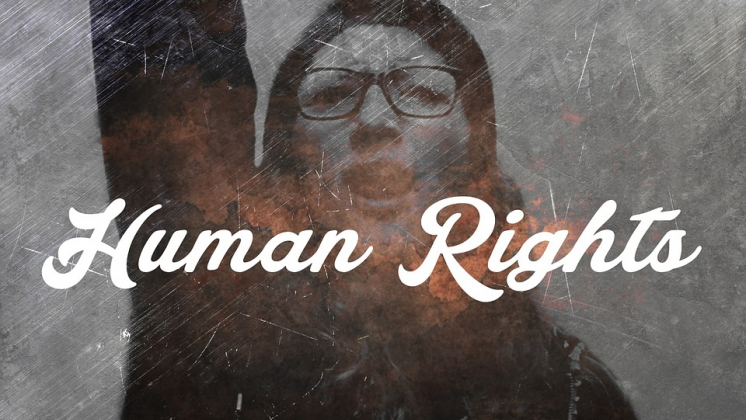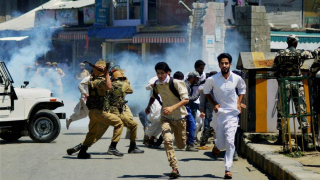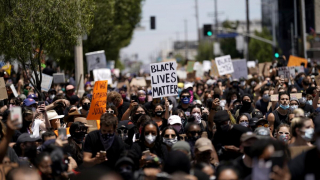Human Rights Advocates in Bahrain Behind Bars
Following the eruption of 2011 popular uprising against government corruption and persecution, the situation for human rights defenders in the tiny Persian island of Bahrain has become even more problematic. The regime has reacted with harsh measures and a crackdown on the peaceful protesters, civil society leaders, human rights defenders and pro-democracy activists.
Nabeel Rajab, a Bahraini prominent human rights advocate, and President of the Bahrain Centre for Human Rights is serving a pre-trial detention for exercising his right to freedom of expression, amid the international calls to immediately and unconditionally release him. The Bahraini authorities detain Rajab in relation to his activism, and to statements, he posted on Twitter.
On 15 January 2018, Bahrain’s Court of Cassation upheld the two-year sentence of Rajab for the case related to his participation in televised interviews. The Twitter case was adjourned to 21 February 2018, for the 20th time since his detention on 13 June 2016. On that hearing, the High Criminal Court sentenced Rajab to five years in prison over tweets alleging prison torture in his country and misconduct in Saudi Arabia’s war in Yemen, despite wide international criticism of his trial. Rajab had been found guilty of ‘spreading rumours and untruthful information’ against the Bahraini government in TV interviews.
Adam Rajab, son of Nabeel Rajab, said that his father has spent 4 out of the 7 uprising years in prison, most of which were in solitary confinement. He has faced physical intimidation, arrest, detention and travel bans as in violation of rights of assembly and expression.
Indeed, Human rights defenders, in Bahrain, are tried in military courts for their criticism of the government; often charged with fabricated crimes, given hugely disproportionate sentences, ill-treated and tortured in detention, held incommunicado and denied access to family and lawyers. Their alleged confessions which are extracted under duress are been admitted as evidence in court, in contravention of international laws.
Without a doubt, the trails of Rajab and many others illustrate the deterioration of the levels of freedom of expression, which has become, according to the authorities, a crime instead of being a right. These charges involved the peaceful exercise of internationally protected rights to freedom of expression, which Bahrain acceded to. Indeed, Rajab’s arrest contravenes his rights to freedom of expression and association, as protected by articles 19 and 22 of the International Protocol on Civil and Political Rights.
Rajab has been a human rights defender for over 15 years, in Bahrain and across the Persian region. Charges brought against him have significantly hampered his active struggle, however, his great determination and unbreakable steadiness is abundant, and he has repeatedly demonstrated his firm stance to endure until the last breath, "I've spent a great part of my time in jail for the last few years because of my criticism against the government. However, it is a price I'm willing to pay for the freedom I'm fighting for".
So far, Bahrain has repeatedly shown unwillingness to comply with international legal standards, despite its promise to the United Nation and to the Bahrain Independent Commission of Inquiry. The recommendations of 2017-UPR have urged the Bahraini government to "re-evaluate its adherence to international human rights standards".
Dimitris Christopoulos, president of the Paris-based group, emphasised that Rajab is not only a human rights defender but also a man of intellectual value who should not be in jail. He added that he expects the Bahraini authorities to understand that violating the fundamental human rights of rights defenders is not the way to proceed. He warned that Rajab could face an even longer jail term for a separate case he faces.
Nabeel Rajab's arrest has received widespread international attention, and it should not go unnoticed and unchallenged. The UN High Commissioner on Human Rights Zeid Ra'ad Al Hussein warned Bahrain: "Repression will not eliminate people’s grievances; it will increase them". Rajab has been prosecuted repeatedly since the 2011 Arab Spring, on charges based on his activism, posts on social media, and televised interviews, "organizing unauthorized protests, insulting the government, insulting the Central Jau Prison administration, insulting a statutory body, undermining the war in Yemen, spreading false news, offending a foreign country", and much more.
The United States called for the immediate release of Rajab, in its latest statement on his recent prison sentence. US Department of State Spokesperson Heather Nauert stressed that “the US Department of State will continue to have conversations with the Government of Bahrain about its very serious concerns about Nabeel Rajab case.” UK Minister for the Middle East Alistair Burt expressed his concern about the recent sentence issued against Bahraini activist Nabeel Rajab. The German government expressed that it is deeply concerned about sentencing Rajab, appealing to Bahrain “to fulfil its obligations to protect human rights and fundamental freedoms.” European Union called for the release of Rajab, commenting on new Bahraini court ruling sentencing him to additional five years in prison.
The Observatory for the Protection of Human Rights Defenders, a partnership of FIDH and the World Organisation against Torture (OMCT), said in a joint statement that the verdict issued against Nabeel Rajab is “surrealistic”, and that it came after a trial that was by itself a mockery of justice. Amnesty International stressed that the new sentencing of Rajab to five years in prison, for peacefully expressing his opinions online, illustrates the Bahraini authorities’ utter contempt for freedom of expression.














